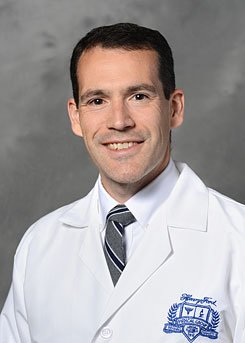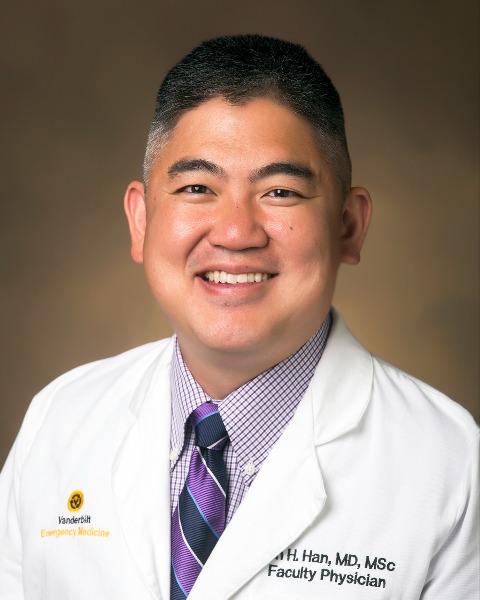Leveraging National Institutes of Health Network Trials for Your Ancillary Study Proposal (Research Committee Sponsored)
Ancillary studies are investigator-initiated studies that involve an extension of the main goals of a Network clinical trial and usually require collection of additional data or samples. Ancillary studies can generate important new knowledge and clinical insights, identify novel targets or biomarkers, test new hypotheses, validate existing findings, or explore the feasibility or efficacy of new interventions or strategies. Ancillary studies can provide fantastic opportunities for junior investigators to gain experience and mentorship from senior investigators. Nonetheless, these studies require careful planning and coordination. Emergency researchers interested in conducting ancillary studies need to identify suitable parent projects, many of which are deployed through large and potentially complex research networks, and establish effective collaborations with the principal investigators and study teams. This session will provide an overview of what an ancillary study is and how it differs from other types of research projects, and discuss some advantages and challenges of conducting an ancillary study. It will also provide guidance on how to identify potential parent projects, establish collaborations, select funding opportunities, and prepare applications. The session will feature a panel of experts who have conducted NIH-funded ancillary studies in various disease areas. The panelists will share their experiences and lessons learned from conducting ancillary studies and their recommendations and advice for prospective applicants. At the end of this session, the audience should be able to describe what ancillary studies are, how ancillaries differ from sub-studies or secondary analyses, and the benefits and challenges of conducting ancillaries. Participants will also be able to select appropriate parent projects, define appropriate funding opportunities, and establish collaborations with parent project study teams.
Presenters:
- Peter Chuanyi Hou, MD
- Joseph Miller, MD, MS
- Jonathan Elmer, MD, MS
- Jin H. Han, MD, MSc
- Stephen Korn, PhD
-

Peter C. Hou, MD
Assistant Professor of Emergency Medicine
Harvard Medical School
I am dual-boarded in emergency medicine and critical care. My clinical interest is the care of the critically ill ED patients who require resuscitation and critical care. I am a clinical expert, innovator, educator, and researcher. I have contributed to sepsis, ARDS, and COVID-19 research which synergistically aligned with my clinical interest in sepsis and ARDS management. I have participated in many multi-centered trials and studies and co-authored 5 articles in New England Journal of Medicine and 2 articles in the Journal of American Medical Association. I led the formation of the Brigham Critical Care Research Collaborative and Consortium (BCCRCC). I was a Co-Lead Investigator for the Acute Lung Injury Group of New England Clinical Center (ALIGNE CC) and a Steering Committee member of the Prevention and Early Treatment of Acute Lung injury (PETAL) Network.
I was a key member to the creation of the Division of Emergency Critical Care Medicine in 2016. With the establishment of the Brigham and Women's Hospital Emergency Medicine and Critical Care Medicine fellowship, BCCRCC, and ED and ICU clinical and research operations portfolios, I have greatly contributed to elevating our division within our department, hospital, and Mass General Brigham. -

Joseph Miller, MD, MS
Clinical Associate Professor
Henry Ford Health / Michigan State University Health Sciences
I am a Clinical Associate Professor of Emergency Medicine at Henry Ford Health and Michigan State University. I lead the SAEM ARMED course and frequently speaks on statistical methods. My research focuses on the intersection of neurological and cardiovascular emergencies, and I am a principal investigator for a R01 ancillary study to the BOOST-3 trial. -

Jonathan Elmer, MD, MS
University of Pittsburgh
I am an Associate Professor of Emergency Medicine, Critical Care Medicine and Neurology at the University of Pittsburgh School of Medicine. I am a multi-R01 funded physician investigator whose research aims to create better approaches to prediction of post-arrest outcomes and treatment responsiveness. I am the principal investigator of an R01 ancillary study to the ICECAP trial.
Dr. Elmer is an Associate Professor of Emergency Medicine, Critical Care Medicine and Neurology at the University of Pittsburgh School of Medicine. He graduated from Mount Sinai School of Medicine in 2008 and completed residency in emergency medicine at the Massachusetts General Hospital/Brigham and Women’s Hospital combined training program. He completed critical care and neurocritical care training at University of Pittsburgh before joining the faculty. His research is focused on improving delivery of acute post-arrest care to improve patient outcomes. Specific domains of his work include elucidating the effect of neurocritical care and systems of care on patient outcomes; advancing the science of neurological prognostication and post-arrest risk stratification; and developing robust methods for analysis of continuous, correlated physiological and electroencephalographic data. His leads multiple federal grants to support these efforts. Clinically, he attends in the neurovascular and neurotrauma intensive care units and on the Post-Cardiac Arrest Service at UPMC Presbyterian Hospital and directs the Organ Donor Support Team. He has mentored numerous trainees ranging from undergraduates to early career faculty. -

Jin H. Han, MD, MSc
Vanderbilt University
Dr. Jin Han is a Professor in the Department of Emergency Medicine at Vanderbilt University Medical Center. He is also a core faculty member of the Geriatric Research, Education, and Clinical Care (GRECC) in the Tennessee Valley Veterans Affairs Healthcare System and the Critical Illness, Brain Dysfunction, and Survivorship (CIBS) Center. He is a delirium and cognitive outcomes researcher who has received funding from the NIH, CDC, PCORI, and EMF.
-

Stephen Korn, MD
Full Professor
University of Connecticut-Storrs
Dr. Korn came to the National Institute of Neurological Disorders and Stroke (NINDS) as Director of the Office of Training, Career Development, and Workforce Diversity (now the Office of Training and Workforce Development) in January 2006. He received his PhD in Pharmacology from the University of North Carolina - Chapel Hill, and received postdoctoral training at NIH (as a PRAT Fellow of NIGMS) and at the Roche Institute of Molecular Biology (with financial support from NRSA postdoctoral fellowships). He then spent 15 years on the faculty of the University of Connecticut at Storrs, where he was a Full Professor. His area of scientific specialty is the molecular basis of ion channel gating and permeation, but he has also conducted electrophysiological and imaging research on calcium and pH transport/buffering, and synaptic transmission in the hippocampal slice. At NINDS, Dr. Korn oversees all training and research education programs that do not specifically target the goal of diversifying the workforce, including all mechanisms that support both individuals and institutional programs, as well as the LRP program and Landis Award program. Recently, Dr. Korn and his office have launched a major effort through the training programs intended to improve the rigor of scientific research done by both trainees and established investigators.
